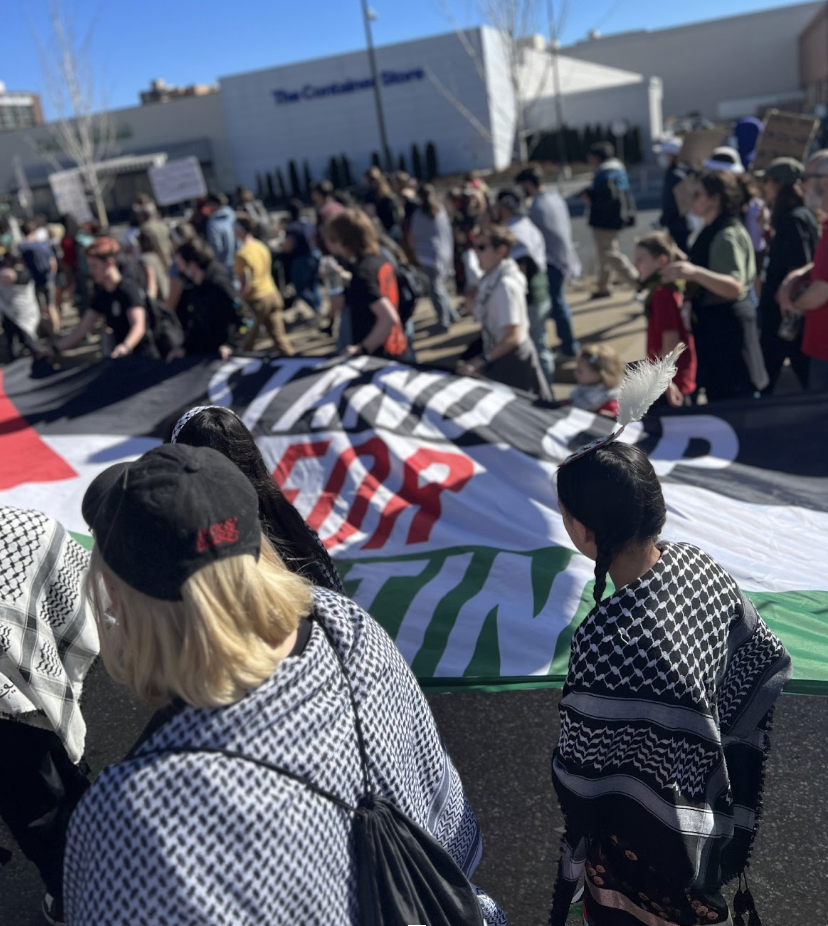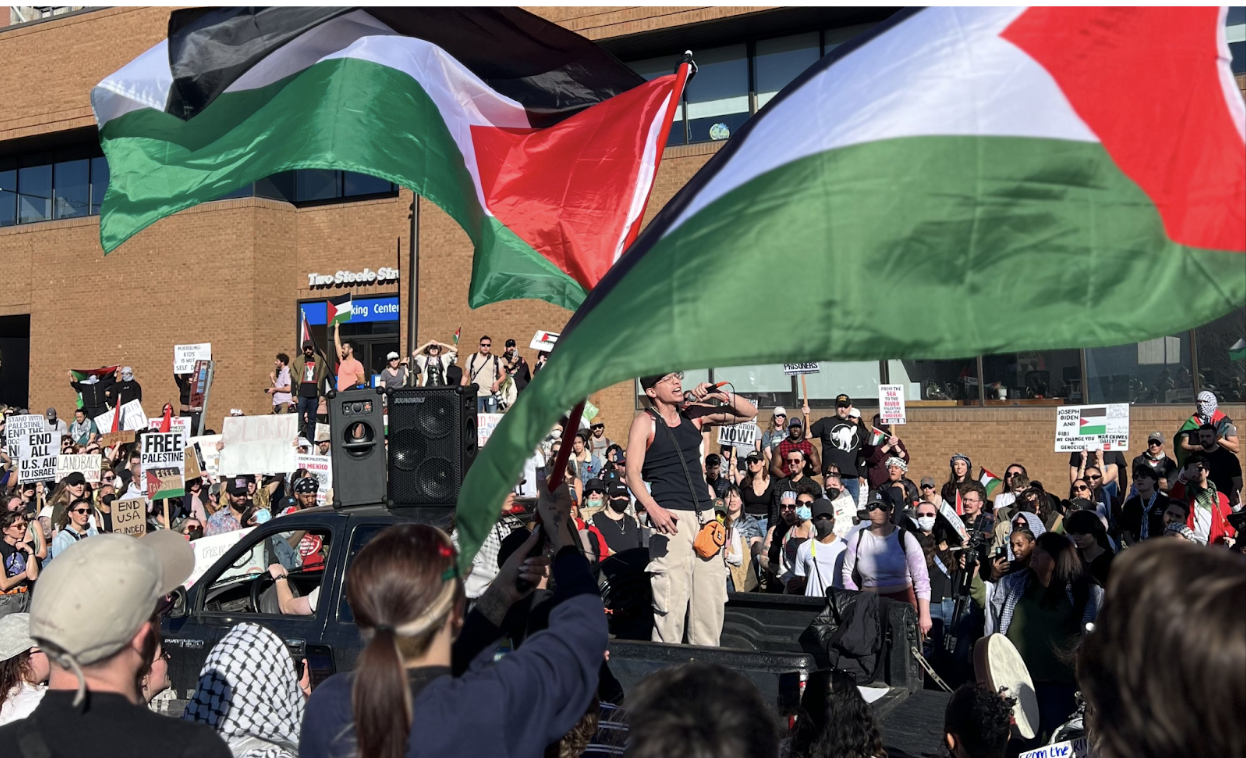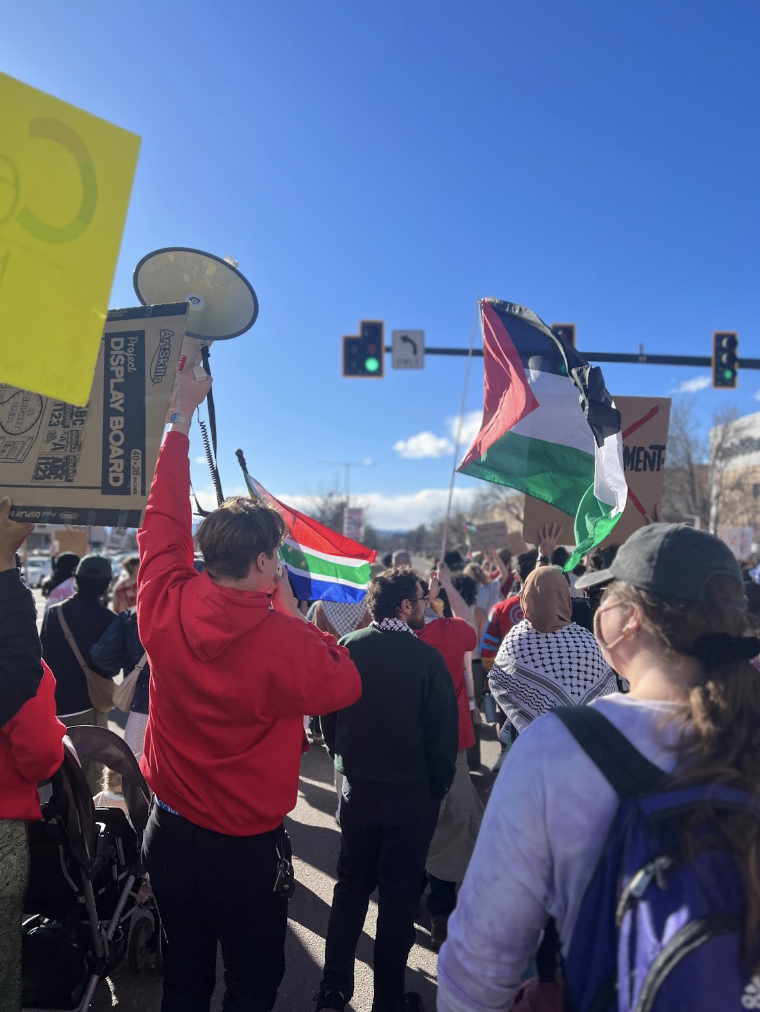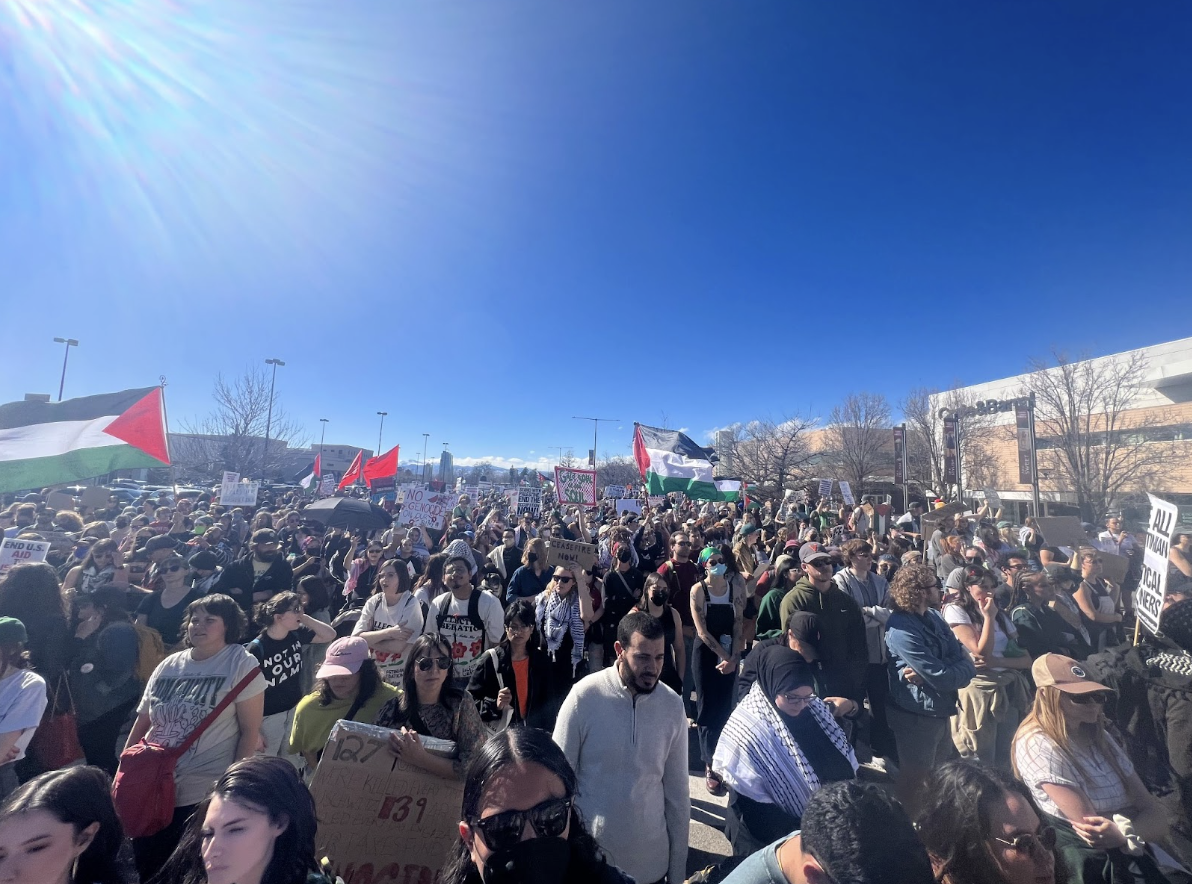Last Saturday, hundreds of Denverites participated in a global protest calling for a ceasefire in Gaza. The expected demands were present throughout the two-hour march. But what was surprising — and quite profound — was how the speakers connected the problems occurring abroad to the problems many Americans are experiencing in Denver and other areas throughout the country. By doing so, the speakers created more pathways of support for Palestine and made the cause more relatable to Americans.
Organized by the Colorado Palestine Coalition, the protest took place near the Cherry Creek Shopping Center just north of the University of Denver. It is important to note that the atmosphere was full of peaceful energy, and the organizers took special precautions to ensure that it stayed this way. People even brought their dogs and children to participate.

The central demand was fairly straightforward: end the violent occupation of Palestine and stop the genocide that is currently taking place. A focus on the role of taxpayer dollars funding the crisis was a source of discontent as well. Most of the demands were geared toward the Biden administration, with chants even calling Biden as a murderer for the policy his office has maintained.
Throughout the march, there were several stops along 1st Ave., where the leaders of various organizations would give speeches while passing cars honked in support. One of the speakers who stood out was a representative from the organization Wyoming 4 Palestine. His focus centered on the relationship that veterans, the homeless and Native American communities have with our military-industrial complex.
He started by attaching his Native American identity, and his ancestor’s struggle against colonialism, with the long and enduring struggle Palestinians have had with colonialism as well.
“From the occupied lands of the Cheyenne and Arapaho lands, Free Palestine!” he chanted before lambasting the U.S. government for investing in Israel’s occupation instead of supporting veterans and homeless populations who are in continual need of resources.

He also stood up for veterans and separated their needs when joining the military from the missions our government sent them on. “These individuals are not unthinking, they are not uncritical” and “in some cases they are more bothered by [the current genocide] than we are,” he said.
Poverty is what drives people to participate in our military’s crimes. As he put it, “Indigenous people did not become the most overrepresented population in the U.S. military by coincidence.”
To be clear, he spent plenty of time focusing on the support Israel has received from Biden and even Jared Polis. He also mentioned the “performative” actions of the U.S. dropping aid in Gaza last week, with claims being repeated throughout the march that much of the aid landed in the sea. Yet his ability to intertwine class issues with America’s relationship with colonialism was powerful and well-founded.
The speaker before did not shy away from the topic of class as well. “Our interests, collectively, are not the interests of the ruling class” he stated. He also elaborated on the “systems” of oppression being tested in Gaza so that they can be “repackaged and repurposed and brought to us for our consumption on our Southern border,” as well on Indigenous nations.
To bring it even closer to the Denver area, he discussed how Israel’s tactics are also being exported to police departments so that they can “overpolice our communities” and “overexploit Black and Brown people.” This point is just one of the few that have been brought up so far that connects the crisis in Palestine to the crises taking place in the United States, and they are particularly effective for two reasons.

Firstly, this rhetoric goes beyond a singular crisis and points to a complex system of oppression that is not new. The western world only gave up its last colonies in the 1960s, meaning my grandparents, and even my parents, were alive when people in Africa and Asia were still under the rule of oppressive colonial regimes. To expect that these European and American tendencies just disappear is naive at best.
These points also show us that this complex system of oppression is a globalized one. Many of the technologies Israel is using in Palestine are indeed being exported and used by different regimes. It is globalization and easier means of communication that allows oppressive regimes to quickly learn and adapt as well.
The second point relates to how this rhetoric better inspires and motivates people in the U.S. to get involved in the Free Palestine movement. Showing Americans that they have skin in the game makes the protest more personal and more urgent. While these tactics might seem distracting from the main goal, which is to stop the U.S. involvement in genocide, it is not. The energy I felt that day tells me otherwise.
At the end of the march, a primary call to action centered around getting involved and voting non-committed in the Democratic primary this Tuesday. By doing so, it would show the Biden administration the importance of listening to his voters, especially in the context of a looming presidential election. A similar movement took place in Michigan last week, where over 100,000 voters turned out for Palestine. If the march last Saturday tells me anything, it is that a similar rate of success will occur in Colorado as well.












